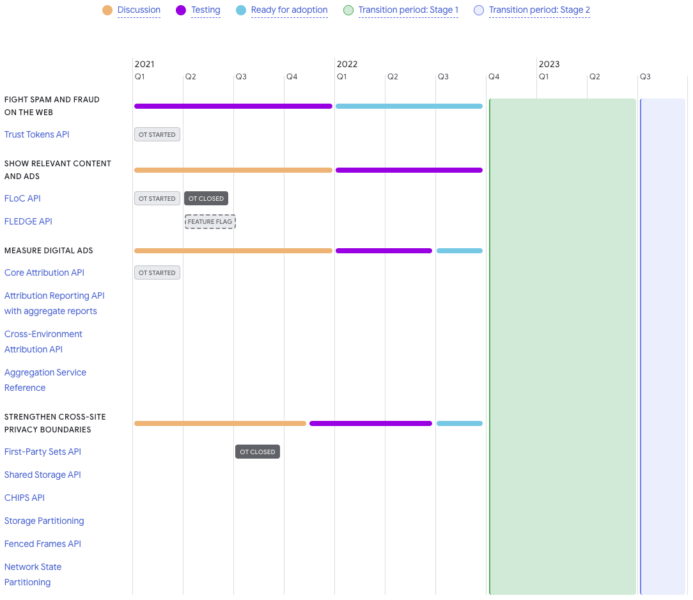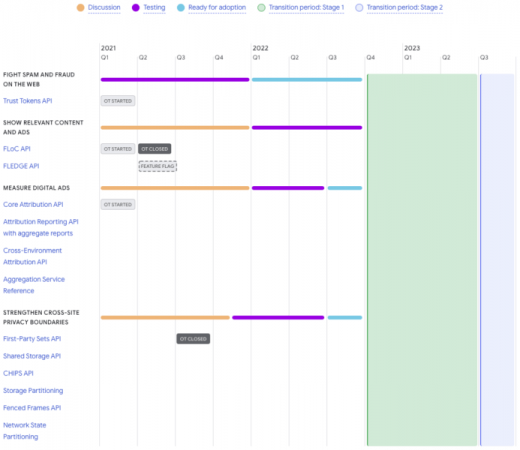Google delays the timeline for testing FLoC
A delay on testing until Q1 2022 may mean further delays in phasing out third-party cookies.
FLoC (Federated Learning of Cohorts) has faced a series of hurdles over the last few months, from a U.K. regulatory requirement that Google not discriminate against its rivals in favor of its own advertising business to internal discussions revealing that a consensus on tracking cohorts (as opposed to, say, topics) has yet to be reached.
Google had already backed up the deprecation of third-party cookies until 2023, but now the testing of FLoC itself — Google’s favored alternative which would track user behavior at cohort rather than individual level — is facing delays.
Google’s monthly Privacy Sandbox timeline update indicates that the company will push back FLoC testing from Q4 2021 (announced in July) to Q1 2022. Testing of FLEDGE, the company’s remarketing solution designed so that third parties cannot track user behavior across sites, is being delayed to Q1 2022 as well.
Read next: Does Google’s FLoC alternative to third-party cookies make sense?

The “Discussion” period, originally set to end in Q3 2021, in which “technologies and their prototypes are discussed in forums such as GitHub or W3C groups,” has been extended through to the end of Q4 2021. This also has an impact on when testing is estimated to end, pushing that back from the end of Q2 to the end of Q3 2022.
What’s more, these changes may have a knockin effect on the deadline for phasing out support for third-party cookies. Google has eliminated the “Ready for adoption” stage from the FLoC and FLEDGE parts of the timeline and another delay may mean a shorter testing period or that Google will have to push back its planned Stage 1 period (the green column in the table above, expected to last from Q4 2022 through to the end of Q2 2023). At some point during Stage 1, the company will announce a new timeline that lowers third-party cookies’ “Time to Live”.
Why we care. With enormous concern among advertisers and publishers that the deprecation of third-party cookies on Chrome will crush their ability to target users with relevant ads, comes an urgency to see whether FLoC is a workable alternative (as well as whether Google, despite the U.K. regulator’s warning, will try to implement FLoC as a walled garden).
Getting early answers to these questions would be welcome, but right now FLoC-related deadlines seem constantly to be receding.
Additional reporting by George Nguyen.
The post Google delays the timeline for testing FLoC appeared first on MarTech.
(45)



